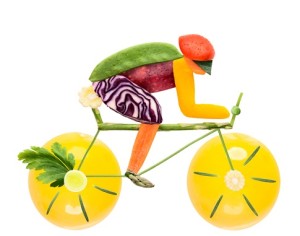Sports And Nutrition

SPORTS AND NUTRITON
Nutrition plays an important role in athletic performance. Nutrition provides energy, carbohydrates, protein , iron ,vitamins, minerals and fluids required for their performance. Nutrition is obtained from the food we consume. The food we eat impacts on our strength, training, performance and recovery. The food timing throughout the day is also important in sports nutrition as it has an impact on the performance levels and the body’s ability to recover after exercising.
Why is Nutrition Important in Sport?
Optimal nutrition ensures the best platform for your sporting success, at whatever level you participate. The goals of sports Nutrition are the following:
- Provide sufficient energy.
- Provide adequate carbs to sustain training.
- Supply adequate fluids to maintain hydration.
- Provide adequate proteins, vitamins and minerals to help in muscle building.
Factors influencing nutritional requirements
The Nutritional requirements differ from each and every individual. However, the amount of each food group needed will depend on:
- Gender
- Height, Weight, BMI
- The type of sport activity (aerobic or anaerobic)
- Stage of activity (Pre workout, Intra workout, Post workout)
- The amount of training
- The amount of time you spend doing the activity or exercise
A proper diet will reduce these disturbances in performance. The key is to get a variety of food, to get all the macronutrients, vitamins, and minerals.
Thumb Rule for Sports Nutrition
Food consumed before and after the activity are the most important in sports nutrition. These are the general thumb rules for Sports Nutrition.
- Eat 2 hours before exercising and that meal should have adequate carbs, low fats, moderate proteins
- Drink plenty of fluids before, during and after workouts or sports, even if you don’t feel thirsty.
- Post sports, the meal should comprise of adequate carbs, low fats and high protein food.
- Avoid exercising on an empty stomach.
- Nutrition Supplements to be taken under the guidance of a Dietitian only.
The actual quantity of required carbs, fats and proteins differ from each other, hence it is best to consult a Qualified Dietitian to achieve individualized sports nutrition plan and to meet your performance goals.
Set Realistic goals
Safety should be the first concern when you aim to change your body weight to improve performance, as it may do more harm than good. Quick reduction of weight, maintaining too low body weight, or preventing weight gain in an unnatural way would give negative health effects. It is important to set realistic body weight goals.
Athletes or Persons who are looking for weight loss should work with a Qualified Dietitian. Experimenting with your own diets can lead to poor eating habits with inadequate or excessive intake of certain nutrients, as the diet should be planned based on your sport, age, gender and amount of training.
An active lifestyle and exercise routine, along with Balanced Nutrition, is the best way to stay healthy.
By,
Uma Maheshwari PS, M.Sc.,M.Phil, PGDHS
Clinical Dietitian, Happy Living Diet Clinic
Contact : +91 900046344










